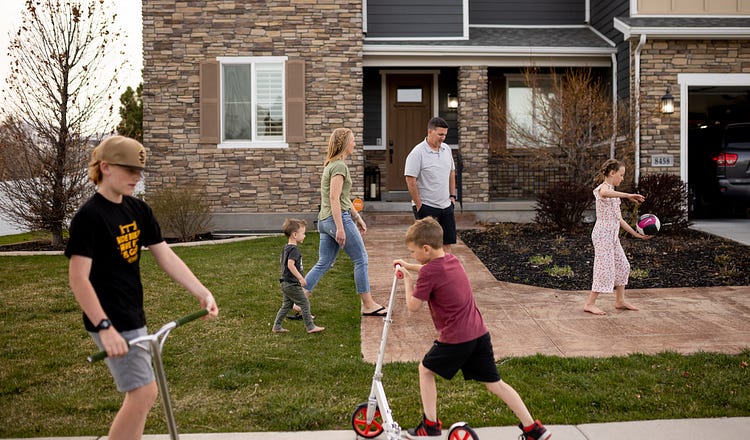The Parents Saying No to Smartphones

Jhett Rogers, 13 (pictured in dark shirt, with his parents and siblings), is the only member of his friend group at his school in Salt Lake City, Utah, without a smartphone. (Spenser Heaps for The Free Press)
‘How you help them learn to be present, in a task or with a relationship, is one of the top challenges of our generation. Part of that is going to be saying no.’
295
Every time one of his classmates gets a smartphone, Jhett Rogers thinks to himself: There goes another one.
“It kind of feels like I’ve lost a friend. Whenever I’m with them, they’re zoned out and always on their phone.”
But Rogers, a middle schooler in Salt Lake City, says he still can’t shake the desire to join the club. Six months ago, the only other…
Enjoying the story?
Enter your email to read this article and receive our daily newsletter.
Error
Already have an account?
Sign In














